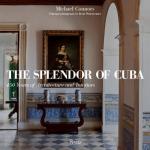|
This section contains 2,753 words (approx. 10 pages at 300 words per page) |

|
In 1898, after three decades of struggle, and ultimately with the assistance of the United States, Cuba gained its independence from Spain. For the following sixty years the Cuban people battled unsuccessfully to establish a legitimate, democratic government. Chaos, cronyism, corruption, violence, instability, and repeated U.S. political and military interventions characterized this period. In January 1959 Cuba's destiny changed dramatically. Fidel Castro (b. c. 1927) and his rebel army overthrew the government of Fulgencio Batista (1901–1973). Within three years the Castro regime had established a selfdescribed Marxist-Leninist government determined to bring about profound institutional transformation. During the first few years of its existence the revolutionary government appropriated the communications media, most businesses, and all banks; closed schools; and established an education system to instruct students in Marxist-Leninist principles and objectives. To protect the revolution from internal and external enemies, the leaders formed a domestic intelligence organization based on "defense committees" that...
|
This section contains 2,753 words (approx. 10 pages at 300 words per page) |

|


